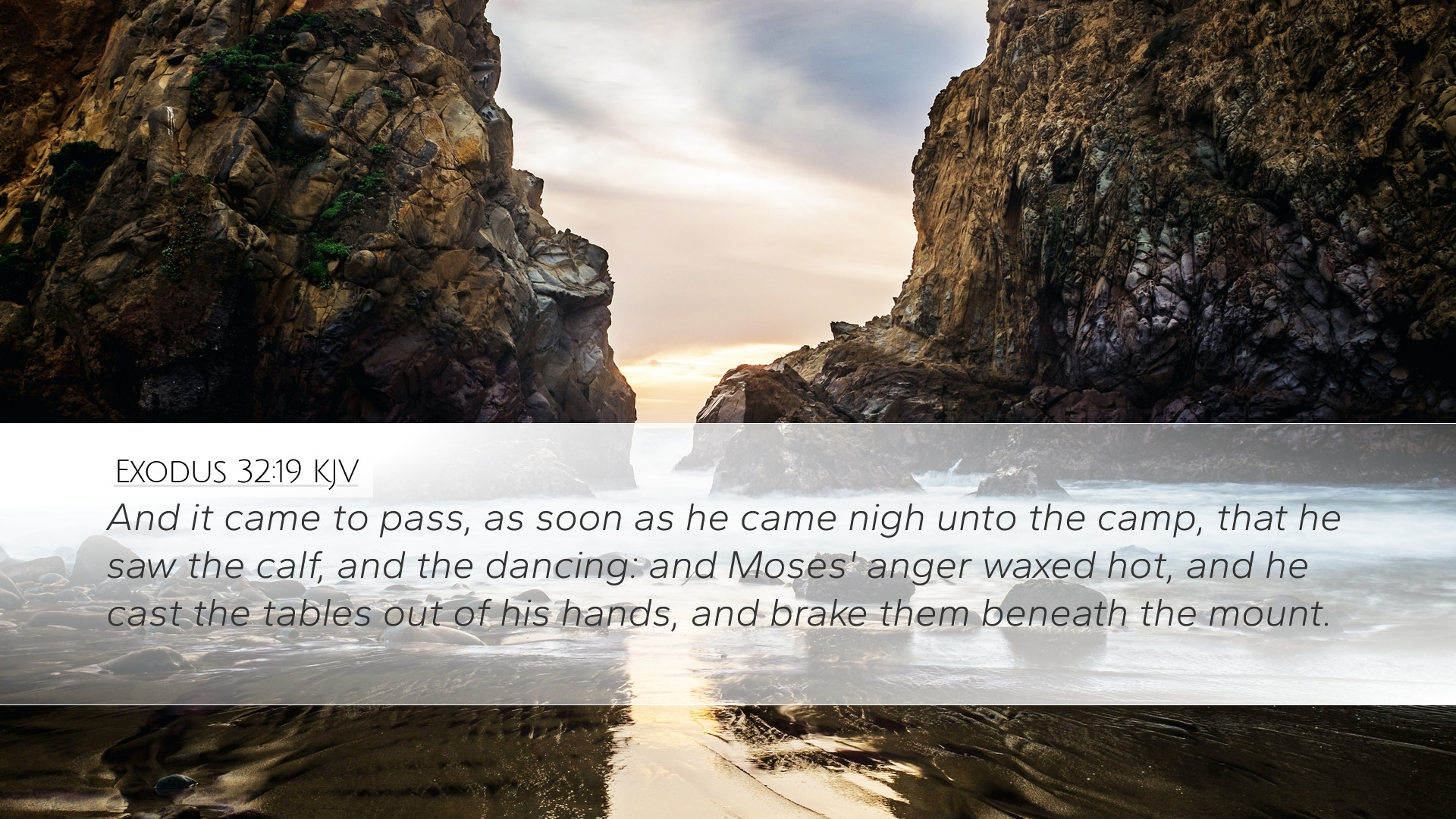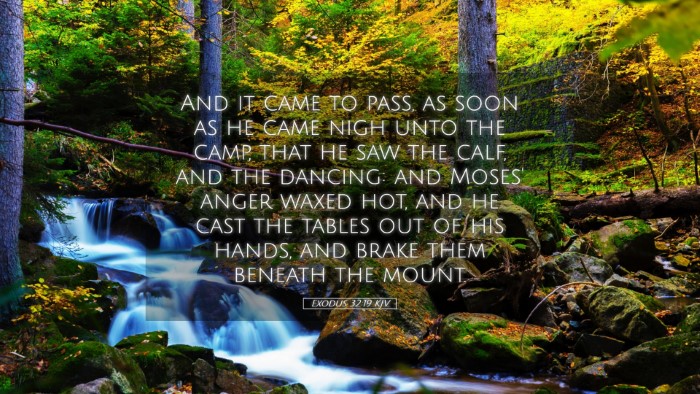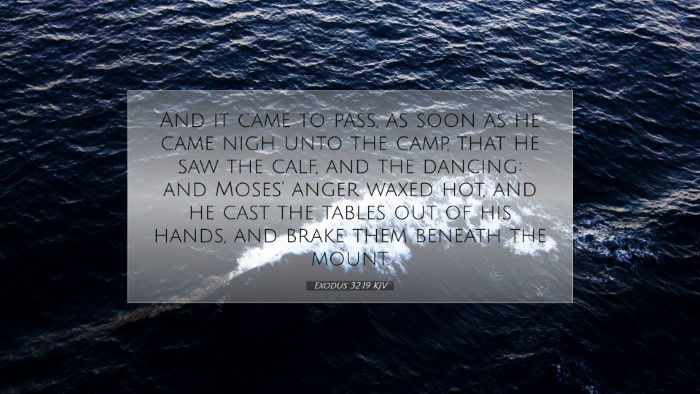Exodus 32:19 Commentary
Verse: “And it came to pass, as soon as he came nigh unto the camp, that he saw the calf, and the dancing: and Moses' anger was kindled, and he cast the tables out of his hands, and brake them beneath the mount.”
Introduction
This verse depicts a crucial moment in Israel's history, where Moses confronts the sinful behavior of the people while he was receiving the Law from God. This commentary aims to explore the theological and moral implications of this event, drawing insights from esteemed public domain commentaries.
Contextual Background
The context of Exodus 32 reveals a significant transition for the Israelites, who had witnessed God’s miraculous deliverance from Egypt. Yet, their impatience and lack of faith lead to idolatry in the absence of Moses. Understanding the gravity of their actions is essential for interpreting Moses' reaction.
Moses' Anger
Moses' immediate reaction to seeing the calf and the revelry is one of profound anger. This is not merely an emotional response, but rather a righteous indignation against the idolatry that violates the first commandments he had just received from God.
- Righteous Anger: Albert Barnes notes that Moses' anger reflects the holiness of God and the seriousness of idol worship.
- Symbol of the Covenant: Adam Clarke explains that the breaking of the tablets signifies the breach of the covenant by the people.
The Significance of the Tablets
When Moses casts down the tablets, it symbolizes the broken relationship between God and His people due to their apostasy.
- Covenantal Failure: Matthew Henry emphasizes that the tablets represented the covenant terms which the Israelites had violated.
- Consequences of Sin: The act of breaking the tablets serves as a visual representation of the consequences of their sin, as stated by Adam Clarke.
Implications for Leadership
Moses' response also provides critical insights for leaders and pastors regarding dealing with sin within a community.
- Confronting Sin: Leaders must not shy away from confronting sin, as Moses does. Albert Barnes highlights the importance of righteous anger in the face of injustice.
- Balancing Compassion and Authority: Henry reminds us that true leaders must balance their authority with compassion, staying grounded in godly wisdom.
Theological Reflections
From a theological standpoint, Moses' anger and the breaking of the tablets serve to highlight the seriousness of sin and God's holiness.
- Holiness of God: The breaking of the tablets illustrates the impossibility of maintaining a covenant relationship while embracing idolatry.
- Mercy and Judgment: Clarke points out that God's mercy is still evident even amidst judgment, as He allows for restoration following Moses' intercession.
Conclusion
Exodus 32:19 encapsulates a pivotal moment of divine revelation and human failure. Moses' actions serve as a stark reminder of the cost of disobedience and the seriousness of a covenant relationship with God. The commentary from public domain sources encourages reflection on the importance of maintaining faithfulness to God, the urgency of confronting sin, and the hope found in His mercy.
As we delve deeper into the implications of this verse, let it compel us to examine our lives, our communities, and our leadership in light of God’s holiness and grace.


